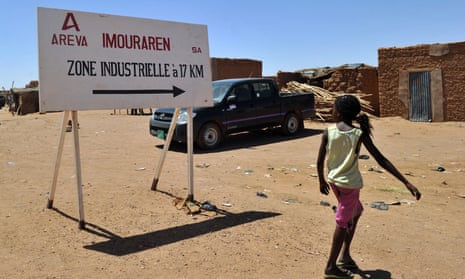It all started in 1990. I was fighting for democracy and better conditions for students. Despite our nation having gained independence from France in 1960, Niger had been prone to political instability and ruled by a one-party system. As a young man all I wanted was freedom and democracy.
These were intense times of violent clashes between citizens and Niger’s armed forces. I lost a cousin and a close friend as three students were shot dead by armed forces during one of our demonstrations in the capital, Niamey. Fighting for democracy was dangerous and scary, but I decided to turn my grief and anger from those losses into a stronger engagement to change things. With other activists, I set up Croisade, a human rights organisation. This time defined my future as an activist.
In the 90s I was calling for democracy, but the food crisis of 2005 made me realise that Niger had another big problem: corruption. Never officially declared a famine, the crisis was brought on by drought, sand locusts and decades of poverty. Looking for ways to raise funds quickly to address the crisis, the Nigerien government decided to impose a tax on basic foodstuffs such as wheat, milk and sugar.
The proposed tax angered me (it would hit the poorest hardest) but also made me curious: as the world’s fourth largest producer of uranium, how could there be no money in the coffers? How can uranium represent 70% of our exports, but only contribute 5.8% to our GDP?
To understand this lack of balance between uranium extraction and its revenues, I looked into the company that was extracting the uranium, Areva. Areva is a French company in which the French government has an 87% stake. Operating in Niger since 1971, Areva refused to comply with the 2006 mining code that increased mining royalties from 5% to 12%.
In 2013, when the contracts between Areva and our government were due for renewal, I hoped that the government would be able to get a fairer deal. With fellow transparency activists we had founded Rotab, the Network of Organisations for Transparency and Budgetary Analysis, and joined the global transparency movement. I hoped that Rotab, as a watchdog, would have an impact on the negotiations. After 18 months of intense discussions, including a visit from the French president François Hollande, an agreement was finally reached: Areva agreed to the increased mining tax but was still exempt from paying VAT. However, no information about this deal has been published and the contracts haven’t been made public, which makes us concerned that Areva may have pressured the Nigerien government to allow it to continue its mining operations.
Asking for answers from the government has cost me and my family a lot. I have missed time from my children’s education and important family moments. I have suffered intimidation and threats, which have at times affected my family. One morning last year, at around 4am, armed police broke through my gate and arrested me in front of my bewildered pregnant wife. My neighbours, on their way to the mosque for morning prayer, were alarmed to see armed plainclothes police around my home. This happened during Hollande’s visit, when we had organised a demonstration demanding the publication of the Areva contract. As the government wanted to hide dissent, they detained me for the duration of the visit.
It has not been easy, and sometimes I have wondered if I could carry on. Much has changed since the coup of 1999, as we have democracy and laws protecting human rights, but we still have a long way to go. On paper there may be freedom of the press and of expression, but as an activist I still fear for my life. But the sacrifice has allowed me to bring the world’s attention to issues affecting Nigeriens.
Knowing that I have the support of Niger’s citizens has pushed me to carry on. I’d like to see a Niger where we work together to keep our country stable and promote its development. But that won’t happen as long as there isn’t a fair distribution of natural resources, and as long as corruption prevails. But even if I am scared at times, fearing for my life, I won’t give up this battle for Niger, for my people, for my family.
